In the same way that a brewer is essential to the production of handcrafted beer, so too is the artisan skill of coffee roasting essential to the coffee industry.

Coffee shops wouldn't exist without coffee, and coffee wouldn't be brewed without its professional coffee roasters. As demand for specialty coffee has increased, coffee roasting has emerged as a respected profession open to many coffee lovers everywhere.
Meanwhile, if you’re an aspiring specialty coffee roaster, then this article is for you as we prepared everything you need to know. Read along to learn more.
What is A Coffee Roaster
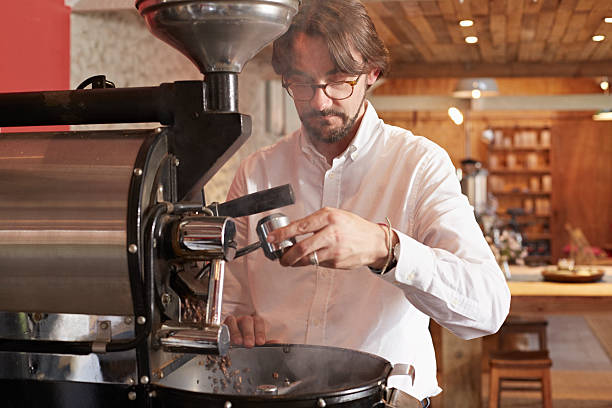
A coffee roaster or roast master is someone who buys raw green coffee seeds from berries that grow on coffee plants and then roast them to a pleasant light or dark hue.
The primary qualifications to become a coffee roaster require dedication to quality and a love for coffee. You'll need to pitch in on cuppings and tastings, get down to the basics of coffee roasting, and keep an eye on quality control as the beans are heated in the oven.
Job Responsibilities of A Coffee Roaster

Aspiring roasters must keep in mind that pursuing this job means that you'll need to be an all-around person to handle all of the responsibilities entailed by this job.
Several tasks that you need to do to become one are to be familiar with the origins of the beans and the location of the farm where they are cultivated and you need to be involved in choosing the best beans from importers.
You may also establish connections with the farmer and negotiate the product's sale and delivery.
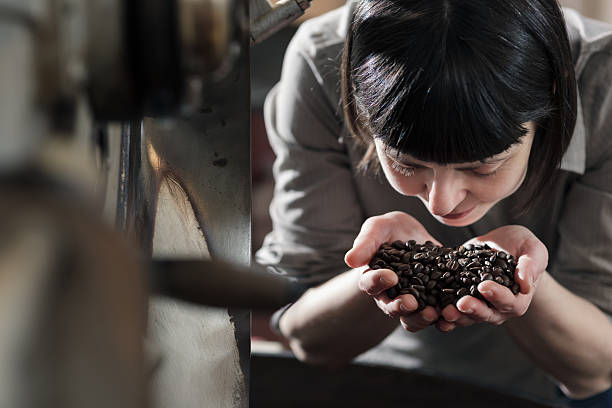
Meanwhile, when it comes to producing a desired light or dark roast, you'd also have control over the roasting process.
As heat makes beans dryer and lighter in weight, you'd have to keep an eye on the roast's temperature. To get reliable coffee roasting outcomes, you may use programmable roasting equipment.
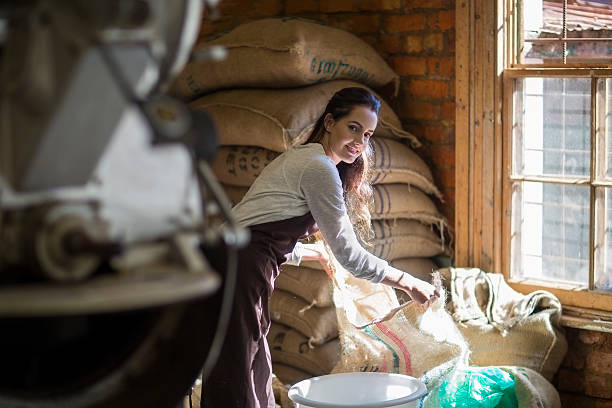
Also, coffee roasters keep track of production schedules and guarantee the quality of the roasted beans.
To improve the flavor of the coffee, you must innovate and produce coffee blends by smelling and tasting your own product. And on top of those tasks, you'd also be in charge of managing and packaging the coffee beans.
Self-employed roast masters also perform networking, marketing, equipment purchases and repairs, expense calculations, bill payment, and order processing.
Different Ways To Become a Coffee Roaster
There are three approaches you could do to achieve your dream of becoming a professional coffee roaster. All you need to do is choose which one is best suited to your current situation and identify which pros and cons will work for you:
1. Invest in a Roasting Program
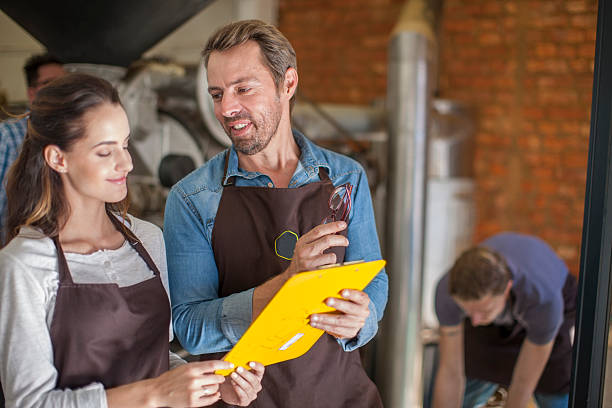
Throughout the United States, there are a number of reliable coffee roasting programs to choose from.
They are made to educate you about the entire production process as well as professional roasting techniques. Although there will be a financial investment, this path offers significant benefits.
Pros:Provides in-depth knowledge about coffee roasting techniques and the entire production process.
-
Offers a professional learning environment with experienced instructors.
-
Provides a structured learning experience that can help you build a solid foundation for your coffee roasting career.
-
Can lead to networking opportunities with other coffee industry professionals.
-
Helps you gain credibility in the industry.
Cons:
-
Can be expensive, requiring a significant financial investment.
-
May not be practical for those who need to work while learning.
-
Can be limited in terms of the type of coffee roasting techniques taught and the equipment used.
2. Be a Coffee Roaster's Apprentice
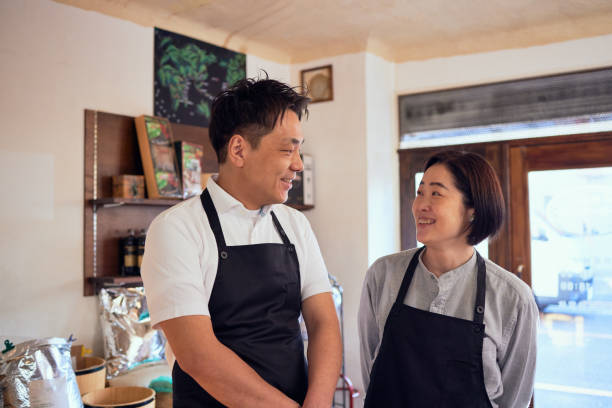
An excellent approach to getting fully versed in the coffee industry is to become a roaster's apprentice or a coffee shop barista yourself.
You can learn on the job from an experienced coffee roaster, giving you first-hand experience with the daily tasks. Learning how to deal with the unexpected and calmly overcome such challenges is a bonus.
Pros:
-
Provides hands-on experience in the coffee roasting industry.
-
Allows you to learn from experienced coffee roasters and gain insight into the daily tasks of a professional roaster.
-
Provides opportunities to network with other professionals in the coffee industry.
-
Offers a flexible learning environment, with the possibility of working part-time or full-time while learning.
Cons:
-
May not provide a structured learning experience, which could make it difficult to build a solid foundation.
-
Opportunities to learn may be limited, depending on the size of the coffee roasting operation.
-
May not provide a comprehensive understanding of the entire production process.
3. Self-Taught Technique

This do-it-yourself strategy typically begins with a passion for coffee and practicing roasting techniques in your own home. This is how a lot of coffee roasters began their careers. Don't be afraid to mention the specifics of your in-home "Roasting Experience" while developing your Resume.
Pros:
-
Provides a flexible learning environment that can be tailored to your schedule.
-
Offers the opportunity to experiment with different roasting techniques and develop your own unique style.
-
Can be a cost-effective way to learn coffee roasting techniques.
Cons:
-
May not provide a comprehensive understanding of the entire production process.
-
May not provide opportunities to network with other professionals in the industry.
-
May not be viewed as credible by potential employers without additional training or experience.
Tips on How To Become A Coffee Roaster
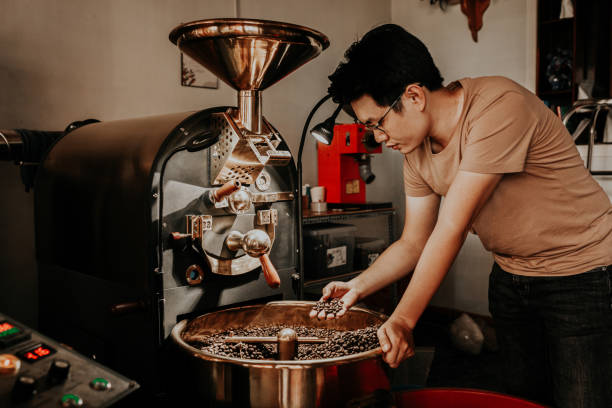
Now that you know the different methods on how you can achieve becoming a coffee roaster, we have some additional tips for you to keep in mind as you go with this coffee roasting venture of yours:
Tip #1: Find the right inspiration
Finding the ideal inspiration must come first if you want to become a roast master. This will assist you in deciding to commit the rest of your future to specialty coffee.
Whether it's a once-in-a-lifetime experience in a foreign coffee bar or a random moment that piqued your interest in learning more about the science of coffee roasting, let your heart and mind be your driving force in leaning more into this profession.
Tip #2: Leave no stone unturned in learning the overall process
When deciding to embark on a new career path, getting an early start on learning is always very important. But it’s also quite overwhelming to start, so where should you exactly begin?
As we’ve said, you may undergo an apprenticeship, or enroll in a course to learn the required information. Whatever it is that you choose, start small and remember that you need to educate yourself about all of the process’ ups and downs.
Coffee roasting is more than just a passion of yours that gives you satisfaction, it is also an art form that you can learn with the right education, commitment, and practice.
Tip #4: Decide if you want coffee roasting as a part of your lifestyle or career
Once you’ve mastered all of the things you need to know, and have officially become a roast master, you can now decide if you want to create a business out of this new-found skill of yours or keep it as a part of your personal lifestyle.
The answer is probably no if your primary goal in becoming a specialty coffee roaster is to lead a carefree life while consuming an endless supply of fine coffee.
The expensive cost of numerous restless nights spent worrying about the success of your roasting project will ultimately be paid by you.
Additionally, you will encounter a variety of daily difficulties, such as attempting to determine the source of your coffee's grassy flavor, which you were unable to detect while cupping it in origin, or worrying that the logistical company might not deliver that pricey micro-lot in time for the holiday season's business.
On the other hand, if your goal is to broaden your sensory, scientific, entrepreneurial, and cultural horizons in coffee roasting, then you should pursue it as a career officially.
Tip #5: Enjoy the overall journey
Regardless of how your career progresses, you will undoubtedly enjoy every challenging step and appreciate the specialty coffee industry.
Along the road, you'll learn how to identify and roast fine coffee in addition to concentrating on the improvement of the science underlying the beverage, the integrity of the supply chain, and the training of coffee enthusiasts worldwide.
The two-character traits that will make the incredible journey of becoming a specialty coffee roaster enjoyable are your own curiosity and perseverance.
In Conclusion,
Becoming a coffee roaster requires dedication, patience, and a passion for the craft.
Whether you choose to invest in a roasting program, become an apprentice, or teach yourself, each approach offers unique benefits and challenges. It's essential to weigh the pros and cons of each approach and decide which one aligns with your goals and learning style.
With the right training and experience, you can develop a successful career in the coffee industry as a skilled and knowledgeable coffee roaster. Remember, it's essential to continue learning and honing your skills as you progress in your career, staying up-to-date with the latest techniques and trends in the industry.
With hard work and a commitment to excellence, you can turn your love for coffee into a fulfilling and rewarding profession.
On the other hand, if you liked this article, then go ahead and share it with your future-coffee roaster friends and families!





Meshal F Al Dohmi
May 15, 2024
Gents ..
Im planning to trading in coffee that’s why I’m interested in your program
With all thanks
Meshal